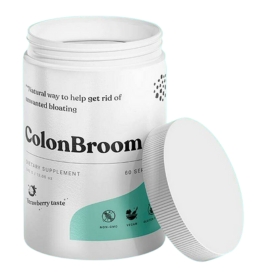Learn the 2024 potential benefits of L-glutamine for gut health, including improved immunity, reduced inflammation, and a heale gut lining.
Many individuals turn to L-glutamine for gut health, and with good reason. L-glutamine is a conditionally essential amino acid and building block for protein, which has numerous benefits for intestinal health — especially in conditions of severe metabolic stress. L-glutamine has extensive bio-availability, allowing the body to utilize it abundantly to facilitate healing.
Some gut health benefits of L-glutamine include improved gut bacterial composition and reduced intestinal permeability. People can take L-glutamine to help reduce gastric inflammation, repair muscles, and boost immunity. Because most of our immune system resides in the gut, immunity and gut health are intricately connected. L-glutamine can support both.
Is L-Glutamine Good For Gut Health?
Yes. L-glutamine is an amino acid that has been shown to improve gut health through various chemical mechanisms. L-glutamine can improve gut function by tightening loose junctures in the intestinal lining, reducing intestinal inflammation, and improving gut microbiota composition.
Does L-Glutamine Improve Gut Health?
Yes. L-glutamine improves gut health through various mechanisms. L-glutamine’s success in helping treat gut dysfunction can be attributed to three broad functions: reducing inflammation, improving composition of gut microbiota, and maintaining intestinal barrier function. Parenteral glutamine supplementation is often used in cases of severe metabolic stress such as burns, trauma or malignancies.
Featured Partner Offer

Colon Broom
- Reduces bloating and relieves constipation
- Improves general gut health
- Increases fiber intake
- Supports healthy cholesterol levels
- Promotes healthy circulation
Inflammatory Bowel Diseases
L-glutamine supplements can be used as nutritional therapy for various intestinal diseases,including celiac disease, as well as Crohn’s disease, and ulcerative colitis, two types of inflammatory bowel disease. Studies have shown that serum glutamine levels are decreased in patients with Crohn’s disease. Therefore, L-glutamine can improve intestinal tissue integrity and reduce inflammation, as well as encourage cellular health in patients with inflammatory bowel diseases.
However, although there is theoretical knowledge that supports the beneficial effects of dietary glutamine supplements on these patients, studies are limited in showing their benefits. In many, no effect was observed.
Irritable Bowel Syndrome
L-glutamine has also been shown to be beneficial in managing symptoms of irritable bowel syndrome.
Does L-glutamine help with bloating, specifically? It can, but it may be beneficial for individuals who experience diarrhea.
Though bloating is a common symptom of irritable bowel syndrome, it may not be attributed to a gastrointestinal syndrome or disease. Rather, it can result from eating too fast, stress, or hormone fluctuations.
Taking L-glutamine may help alleviate occasional gas associated with irritable bowel syndrome management. Fartig and eating debloating foods, such as cucumbers, berries, celery, turmeric, and ginger, are other ways to relieve bloating.
Leaky Gut
A healthy intestinal wall is slightly porous — it has intestinal epithelial tight junctions, or tiny spaces between cells, that allow nutrients from food to be absorbed into the body. A protein called zonulin regulates these tight junctions. L-glutamine regulates tight junction proteins.
These spaces should allow only some nutrients, ions, or signaling factors to transfer into the body. However, if tight junctions lose their tightness, they become open doors for microbes, chemicals, or big structures that may harm tissue. This can cause several health problems, from immune disorders to chronic diseases.
Irritants, including inflammatory foods and emotional stress, can increase zonulin. When these tight junction proteins elevate, it can cause the tight junctions to separate or widen and become too porous. This is referred to as having a leaky gut. As the name suggests, a leaky gut, or increased intestinal permeability, creates leakage where there shouldn’t be.
Inflammatory And Autoimmune Disease
When the gut is leaky, larger food particles, bacteria, and other toxins can enter the bloodstream, creating system inflammation. Over time this can lead to various inflammatory diseases as well as autoimmune diseases.
L-glutamine can help repair the gut lining and reduce the risk of disease. Ask your healthcare provider for specific recommendations about how much L glutamine you should take for a leaky gut.
What Is L-Glutamine?
L-glutamine is an amino acid found in blood and skeletal muscle and is the body’s most widely available amino acid. It travels by blood to various organs to serve functions such as metabolizing energy, antioxidants, and neurotransmitters. It also assists the body’s detoxification process. L-glutamine is also found in many whole foods.
Foods Containing Glutamine
Dietary glutamine can be found in animal foods such as beef, chicken, pork, and seafood, as well as dairy products such as cheese, milk, and yogurt. Additionally, glutamine can be obtained from plant-based foods like grains.
Increasing these foods may help you increase L-glutamine levels; however, depending on your health needs and glutamine deficiency, your doctor may prescribe additional L-glutamine supplementation. If your ailment requires further treatment, ask your healthcare provider about vitamins for gut health or pills that can help you debloat.
Health Benefits Of L-Glutamine
Glutamine supplementation enhances gut health, but L-glutamine can also serve as a nutritional therapy for other aspects of health.
Immunity
L-glutamine can enhance immunity. The majority of our immune cells reside in the gut. In fact, the entire gastrointestinal tract is lined with epithelial immune cells.These cells are our first line of defense as they come into contact with viruses and bacteria from the environment. L-glutamine can help improve gut and immune cell function.
Disease Treatment
In addition to improving immune function, L-glutamine is commonly used in treating sickle cell anemia by helping prevent red blood cell damage.
Also, glutamine supplementation can effectively support burn injuries and chemotherapy treatments. Studies have also investigated the link between glutamine metabolism and autosomal-dominant polycystic kidney disease. Research suggests L-glutamine can slow cyst growth.
Muscle Repair
L-glutamine supplementation may also help reduce muscle damage after exercise. Amino acids are the building blocks of proteins. We need protein for muscle growth. L-glutamine may have particular benefits for muscle recovery by its ability to stimulate] protein synthesis.
L-Glutamine Side Effects
L-glutamine side effects can include gastrointestinal symptoms such as constipation, diarrhea, cramping, nausea, cough, headache, and body pain. In animal studies, researchers have identified a possible link between glutamine and epileptic seizure severity. Tell your doctor if you have seizures before taking L-glutamine.
Pregnant and nursing women should also consult their doctor before use.
When And How To Take L-Glutamine
Taking between 10 and 30 grams of L-glutamine a day is a generally safe dosage for most people. However, this may not apply to everyone. Dosage will depend on your reason for taking L-glutamine. When taking L-glutamine for better gut health, always follow the recommended dosage outlined by your doctor.
The Bottom Line
Many practitioners advise their patients to take L-glutamine for better gut health. L-glutamine plays a key role in maintaining gut lining integrity and healing a leaky gut. This can help prevent inflammatory diseases from developing. L-glutamine also helps build microbial diversity and improve immune function.
Additionally, L-glutamine can help reduce inflammation that can be triggered by poor diet and stress. L-glutamine is used not only to improve general gut health but also to treat specific gastrointestinal disorders such as inflammatory bowel disease and celiac disease.
Frequently Asked Questions
Yes. L-glutamine can improve gut health and help heal some intestinal diseases by maintaining tight junctures in the intestinal wall, reducing gut inflammation, and improving gut microbiota composition.
Taking 10-30 grams of L-glutamine a day is safe for most people. However, your doctor may want you to take more or less, depending on your state of health. Always follow your doctor’s advice.
You should take L-glutamine daily unless otherwise instructed by your doctor.
This will be on a case-by-case basis depending on the person and the severity of their gut health issues. A doctor may recommend taking L-glutamine for a few weeks or a few months.
Yes. If your healthcare practitioner recommends that you take a glutamine supplement, they will likely suggest you take it daily. However, you should consult with them about the length of time to take it.
It depends. If you have poor gut health, your doctor may want you to supplement glutamine in addition to your diet. However, if you get enough through diet and you are healthy, there is no need to take glutamine.
Unless your doctor recommends taking L-glutamine, you should avoid it.

